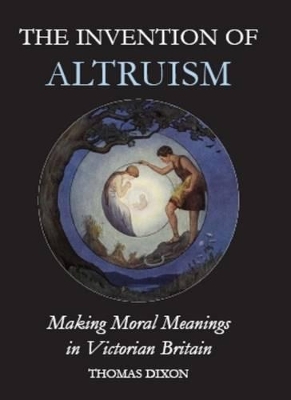Altruism' was coined by the French sociologist Auguste Comte in the early 1850s as a theoretical term in his 'cerebral theory' and as the central ideal of his atheistic 'Religion of Humanity'. In The Invention of Altruism, Thomas Dixon traces this new language of 'altruism' as it spread through British culture between the 1850s and the 1900s, and in doing so provides a new portrait of Victorian moral thought.
Drawing attention to the importance of Comtean positivism in setting the agenda for debates about science and religion, this volume challenges received ideas about both Charles Darwin and Herbert Spencer as moral philosophers. Darwin saw sympathy and love, not only selfishness and competition, throughout the natural world. Spencer was the instigator of an Anti-Aggression League and an advocate of greater altruism in Britain's dealings with the 'lower races'. It also sheds light on the rise of
popular socialism in the 1880s, on the creation of the idealist 'altruist' in novels of the 1890s, and on the individualistic philosophies of Friedrich Nietzsche, Oscar Wilde, and G. E. Moore - authors considered by some to be representative of fin de siecle 'egomania.'
This wide-ranging study in the history of ideas is highly relevant to contemporary debates about altruism, evolution, religion, and ethics.
- ISBN10 0197264263
- ISBN13 9780197264263
- Publish Date 8 May 2008
- Publish Status Active
- Publish Country GB
- Imprint Oxford University Press
- Format Hardcover
- Pages 440
- Language English
